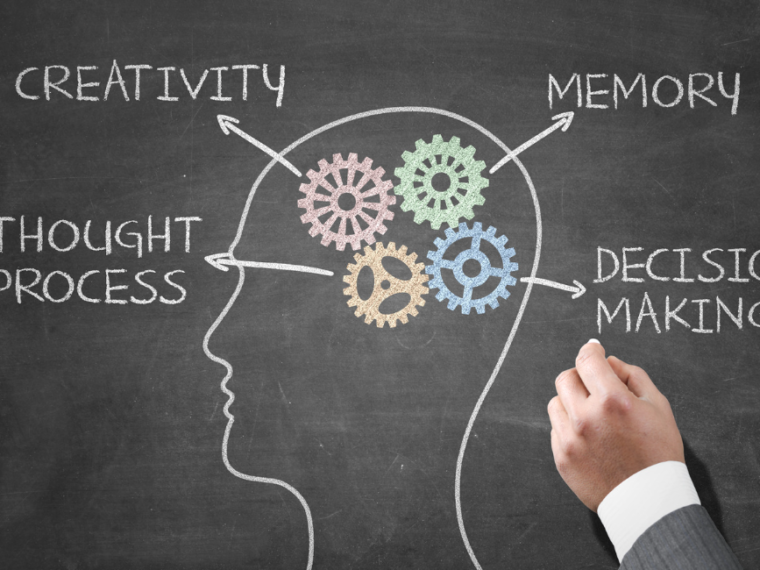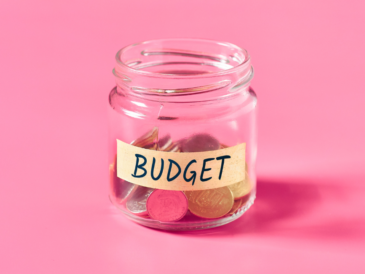I’ve spent years strengthening my executive functioning skills for my ADHD. Working in tech can be exhausting and thrilling at the same time. I love coaching teams to unlock their full potential and create products users love. But some days require you to take on tasks that are extremely boring and absolutely dreadful to take on.
This article will guide you through the main crucial strategies and tools to enhance your planning, organization, time management, emotional regulation, flexibility, and self-monitoring. Elevate your productivity and efficiency for executive success!
Funny enough, these skills are often unused or poorly trained by non-ADHDers too. At the moment, using ADHD is a massive selling point online. Which is a bit unfair for two reasons. One, just because you have similar symptoms doesn’t mean you have ADHD. And two, just because everyone has similar symptoms, doesn’t mean ADHD is not real. It’s actually how much these symptoms take over your life and how quickly you can handle them that makes the difference between someone with ADHD and someone who doesn’t. These tools can help anyone. I saw this in my team, colleagues, shareholders, and stakeholders.
I will approach these strategies with a twist, as if you were navigating them with an ADHD brain. This will allow anyone to use it and apply it, regardless of their cognitive wiring. I hope these insights help you as much as they have helped me and my neurospicy friends.
Key Executive Function Skill 1: Planning
What is Planning in Executive Function?
Planning in executive function is the cognitive skill that allows you to map out your goals and the steps needed to achieve them. It’s like having a mental blueprint that helps you navigate from point A to point B with a clear direction and purpose. For those with ADHD, planning can sometimes feel like trying to put together a jigsaw puzzle without the picture on the box. But when you master this skill, you’re essentially creating that picture yourself—seeing the big picture, breaking it down into manageable pieces, and organizing your actions to fit them together seamlessly.
Why is Planning Essential for Productivity?
Planning is the backbone of productivity because it provides structure in an otherwise chaotic world. Without a plan, it’s easy to get lost in the sea of daily tasks, jumping from one thing to another without making meaningful progress. For people with ADHD, this can be especially challenging as distractions are everywhere. But with a solid plan in place, you’re not just working harder—you’re working smarter. Planning allows you to prioritize what’s important, allocate your resources effectively, and stay on track, ensuring that your efforts are aligned with your goals.
This is How Planning Improves Your Decision-Making Skills
When you have a clear plan, decision-making becomes a lot less daunting. Instead of being overwhelmed by choices and unsure of which direction to take, a well-thought-out plan gives you a framework to evaluate your options. This is particularly helpful for those with ADHD, where impulsivity can sometimes lead to hasty decisions. With planning, you can weigh the pros and cons, anticipate potential challenges, and make choices that are aligned with your long-term goals. It turns decision-making from a reactive process into a proactive one.
How Does Planning Improve Time Management?
Planning and time management go hand in hand. When you plan effectively, you’re essentially creating a roadmap for how you’ll spend your time. For those with ADHD, where time can feel slippery and elusive, this is a game-changer. Planning helps you break down your day into specific tasks and allocate time slots for each. This not only ensures that you’re working on the right things at the right times but also helps you avoid the common pitfall of underestimating how long tasks will take. By managing your time with intention, you can increase your efficiency and get more done in less time.
This is How Planning Reduces Stress
Stress often comes from the feeling of being overwhelmed, not knowing where to start, or how to tackle a mountain of tasks. Planning acts as a stress reliever by bringing order to the chaos. When you take the time to plan, you’re giving yourself a clear path forward, which reduces the anxiety of the unknown. For those with ADHD, who often struggle with unpredictability and sudden changes, planning gives a sense of control and predictability. By laying out your tasks and timelines, you can approach your day with more confidence, knowing exactly what needs to be done and when. But hold up! People with ADHD and master procrastinators will say, I do my best work when the deadline is nearest. But in reality, you have been stressing about it till that deadline came, worrying about all the possible negative outcomes. And you know you could’ve done an even better job if you hadn’t waited till the very last minute.
If you really feel deadlines make things better, use your daily tasks as daily deadlines. Give yourself less time than usual to complete a separate task. E.g. instead of 6 hours for a task that day, set a timer for 45 minutes. It’s similar to making a whole plan in 8 hours, instead of two weeks. You’ll do your best work using the deadline effect each separate day. Now that you are following your list of tasks repetitively, planning and following a plan, becomes a habit for you. This means you will stress for a much shorter period of time. You will feel accomplished every day, and you are still using the deadline effect to your advantage.
What is the First Step in Effective Planning?
The first step in effective planning is to clarify your goals and around when you wish to achieve them. It’s easy to jump into tasks without really knowing what you’re aiming for, but this often leads to wasted effort and frustration. For those with ADHD, where attention gets scattered more easily, having a clear goal serves as a beacon, guiding your focus and energy. Remind yourself multiple times per day of that goal, and what you’d miss out on if you didn’t achieve it. Start by defining what you want to achieve—whether it’s completing a project, organizing your space, or even just getting through your to-do list. Once you know your destination, you can start mapping out the steps to get there, making the planning process much more targeted and effective. You might want to learn a new language or write a book, for example. Set yourself an achievable goal. A goal could be to write or learn five lines a day. Then try to increase it every week. However, when you are having a bad or slow day, your minimum goal should always remain at 5 lines. That way your day doesn’t feel wasted, your goal doesn’t suddenly feel impossible to reach, and it’s much easier to pick yourself up again the next day.
How Do You Improve Your Planning Skills?
Improving your planning skills is all about practice and finding what works best for you. Start by incorporating simple tools like to-do lists, calendars, and apps that help you visualize your tasks. For those with ADHD, visual aids can be particularly helpful in keeping track of your plans. Reflect on your past experiences—what planning strategies have worked for you, and where have you struggled? Experiment with different techniques, like setting smaller, more manageable goals, or breaking tasks into even smaller steps. As you get better at planning and tweaking these tools to suit your needs, your planning abilities will naturally get better, leading to more work and less stress.
Key Executive Function Skill 2: Organization
What is Organization in Executive Function Skills?
Organization in executive function skills is your brain’s ability to structure, arrange, and categorize information, tasks, and physical spaces efficiently. For those with ADHD, however, this part of the brain is often underutilized or struggles to function optimally. The prefrontal cortex is the part of your brain responsible for higher-order functions like planning, decision-making, and organization, which are often underactive in individuals with ADHD. To put it simply, a structural difference of the brain is the reason behind a slacking brain. It causes a lack or imbalance of neurotransmitters that makes the prefrontal cortex less active and less efficient. However, there is good news! You can activate your prefrontal cortex by practicing meditation, prescribed medication, supplements, behavioral therapy, and coaching to make your brain work for you. Staying organized can feel like an uphill battle, with clutter and chaos quickly taking over. But overcoming this problem is the first step towards creating plans that can help you become more organized, even if you have ADHD.
How Does Organization Improve Your Productivity?
When you’re organized, you’re able to focus more on the tasks that matter, instead of wasting time searching for lost items or figuring out what to do next. For those with ADHD, where distractions can easily derail your day, organization acts as a buffer. It clears away the unnecessary noise, giving you a clear path to follow. With everything in its place—whether that’s your workspace, your schedule, or your digital files—you can move from one task to the next with greater ease and efficiency. The result? More work gets done, with less effort.
Tools to Make Your Life More Organized
In the battle against chaos, the right tools can make all the difference. For those with ADHD, tools like digital planners, to-do list apps, and reminder systems are lifesavers. Apps like Trello or Asana can help you visualize your tasks and projects, breaking them down into manageable chunks. Physical tools, like color-coded folders, labeled storage bins, and whiteboards, can also help keep your environment organized. The key is to find tools that fit your style—whether you’re more tactile or digital, there’s something out there to help bring order to your world.
How Does Organization Affect Time Management?
Time management and organization are two sides of the same coin. When you’re organized, you’re able to see what needs to be done and allocate your time more effectively. For those with ADHD, who often struggle with estimating how long tasks will take or juggling multiple responsibilities, organization provides a framework that makes time feel more manageable. By organizing your tasks, you can prioritize what’s important and plan your day accordingly, reducing the chances of running out of time or scrambling at the last minute.
Can Organization Help to Reduce Stress Levels?
Absolutely—organization is like a stress antidote. When your life feels disorganized, it’s easy to get overwhelmed by the sheer number of things demanding your attention. For people with ADHD, this can be particularly anxiety-inducing. But when you’re organized, you have a clear view of what’s ahead, which can significantly reduce stress. Knowing where everything is, having a plan in place, and being able to quickly access what you need brings a sense of control and calm. This reduces the mental load, allowing you to focus on what truly matters without the constant worry of forgetting something.
The First Step to Becoming Organized!
The first step to becoming organized is to start small and keep it simple. Trying to overhaul your entire life at once can be overwhelming, especially if you’re dealing with ADHD. Instead, pick one area to focus on—maybe it’s your workspace, your morning routine, or even just your email inbox. Begin by decluttering and removing what’s not needed, then create a system that works for you. The key is to build momentum by tackling manageable tasks, and as you see the benefits, you’ll be motivated to organize more aspects of your life.
How to Maintain Your New Organizational Habits
Maintaining your new organizational habits is all about consistency and adaptability. Once you’ve set up your systems, make it a daily practice to keep them in check. For those with ADHD, routines can be incredibly helpful—set aside a few minutes each day to tidy up, update your to-do lists, and make adjustments as needed. It’s also important to regularly assess what’s working and what’s not, and be willing to tweak your approach. Remember, organization is a skill that improves with practice, and over time, these habits will become second nature, helping you stay on top of things with less effort.
Key Executive Function Skill 3: Time Management
What is Time Management in Executive Function?
Time management is the skill of planning and controlling how you spend your time to maximize productivity and achieve your goals. In executive function, it involves setting priorities, creating schedules, and allocating time effectively. For individuals with ADHD, mastering time management can be particularly challenging due to difficulties in maintaining focus and managing distractions. Effective time management helps you structure your day efficiently, ensuring that you make the most of your time and stay on track with your tasks and deadlines.
Why is Time Management Important?
Time management is essential because it enables you to use your time productively and avoid the pitfalls of procrastination and last-minute rushes. For those with ADHD, who may struggle with estimating how long tasks will take or staying focused, effective time management provides a structured approach to work. By organizing your schedule and setting clear priorities, you can enhance your productivity, meet deadlines, and achieve your goals with greater ease and efficiency.
What Tools Can Assist with Time Management?
Several tools can assist with time management, especially for those with ADHD. Digital tools like calendar apps, time-tracking software, and task management apps can help you organize your schedule and monitor how you spend your time. Apps like Google Calendar, Todoist, or RescueTime offer features to set reminders, track progress, and manage tasks. Physical tools, such as planners and timers, can also be effective. By utilizing these tools, you can create a system that supports better time management and enhances your productivity.
How Can Poor Time Management Affect Productivity?
Poor time management can significantly impact productivity by leading to missed deadlines, increased stress, and decreased efficiency. For individuals with ADHD, who may already struggle with focus and organization, poor time management exacerbates these challenges. Without a clear plan or schedule, tasks can pile up, and priorities may become blurred, resulting in procrastination and a lack of progress. Improving time management helps mitigate these issues, allowing you to stay organized, prioritize tasks effectively, and maintain a steady workflow.
How Does Prioritization Relate to Time Management?
Prioritization is a key component of effective time management. By identifying and focusing on the most important tasks, you ensure that your time is spent on activities that align with your goals and objectives. For individuals with ADHD, where distractions and competing demands can be overwhelming, prioritization helps you maintain focus on what truly matters. Creating a priority list and tackling high-impact tasks first allows you to manage your time more effectively and achieve better results.
What is the Pomodoro Technique? And the Best Way to Implement with ADHD
The Pomodoro Technique is a time management method that involves working in short, focused intervals (usually 25 minutes) followed by a brief break (5 minutes). After completing four intervals, you take a longer break (15-30 minutes). For individuals with ADHD, this technique can be highly effective by breaking tasks into manageable chunks and providing regular breaks to maintain focus. To implement the Pomodoro Technique, use a timer or an app designed for this purpose, and adjust the intervals if needed to match your attention span. This approach helps improve focus and productivity by creating a structured work pattern.
How Does Setting Deadlines Improve Time Management?
Setting deadlines improves time management by providing clear targets and creating a sense of urgency. Deadlines help you prioritize tasks, manage your schedule, and avoid procrastination. For individuals with ADHD, where managing time can be challenging, deadlines serve as motivational tools that guide your efforts and keep you on track. By setting specific deadlines for tasks and milestones, you can structure your work more effectively and ensure timely completion of your goals.
What Role Do Breaks Play in Time Management?
Breaks play a crucial role in effective time management by preventing burnout and maintaining productivity. For individuals with ADHD, taking regular breaks helps manage focus and energy levels, allowing you to return to tasks with renewed concentration. Incorporating short breaks between work intervals can improve overall efficiency and prevent fatigue. Using techniques like the Pomodoro Technique, which includes scheduled breaks, ensures that you maintain a balanced approach to work and avoid the negative effects of prolonged, uninterrupted tasks.
Key Executive Function Skill 4: Emotional Regulation
What is Emotional Regulation in Executive Function?
Emotional regulation in executive function refers to the ability to manage and respond to emotional experiences in a balanced and constructive manner. It involves recognizing and understanding your emotions, controlling their intensity, and ensuring that they don’t overwhelm or derail your actions. For those with ADHD, emotional regulation can be particularly challenging due to heightened sensitivity and impulsivity. It’s like being at the helm of a ship amidst turbulent waters; mastering this skill means you can steer through emotional storms without losing course. Effective emotional regulation allows you to stay calm under pressure, maintain composure, and navigate social and professional interactions with greater ease.
Why is Emotional Regulation Important?
Emotional regulation is crucial because it helps maintain stability and resilience in the face of life’s challenges. For individuals with ADHD, where emotional responses can be more intense and less controlled, having strong emotional regulation skills is vital for maintaining productive and healthy interactions. It prevents emotions from dictating behavior, which can lead to poor decision-making, conflicts, and stress. By managing emotions effectively, you can approach situations with a clearer mind, make better decisions, and maintain a balanced outlook, which is essential for personal well-being and professional success.
How Does Emotional Regulation Affect Decision-Making?
Emotional regulation significantly impacts decision-making by ensuring that your choices are based on rational thought rather than emotional impulses. When you’re able to manage your emotions, you’re less likely to react impulsively or be swayed by temporary feelings. This is particularly important for those with ADHD, where emotional volatility can lead to hasty or erratic decisions. By practicing emotional regulation, you can evaluate situations more objectively, weigh the pros and cons without being overwhelmed by emotions, and make decisions that align with your long-term goals and values.
What Strategies Can Improve Emotional Regulation?
Improving emotional regulation involves several practical strategies. First, recognizing your emotional triggers and developing coping mechanisms, such as deep breathing or taking a pause, can help manage intense feelings. Cognitive-behavioral techniques, like reframing negative thoughts or practicing mindfulness, also contribute to better emotional control. For individuals with ADHD, creating a routine that includes regular self-care, such as exercise or hobbies, can reduce overall stress levels and improve emotional resilience. Additionally, seeking professional support through therapy or counseling can provide tailored strategies and tools for managing emotions effectively.
What Role Does Mindfulness Play in Emotional Regulation?
Mindfulness plays a critical role in emotional regulation by fostering greater awareness and acceptance of your emotional experiences. Through mindfulness practices, such as meditation and mindful breathing, you can observe your emotions without judgment and respond to them more thoughtfully. This practice helps create a space between experiencing an emotion and reacting to it, allowing for a more measured response. For individuals with ADHD, mindfulness can be especially beneficial in managing impulsive reactions and maintaining a calm demeanor in stressful situations. Incorporating mindfulness into your daily routine can enhance emotional awareness and control.
Can Emotional Regulation Affect Physical Health?
Yes, emotional regulation can have a significant impact on physical health. Chronic emotional stress and poor emotional management can lead to physical symptoms such as headaches, fatigue, or digestive issues. Conversely, effective emotional regulation helps manage stress levels, which can reduce the risk of stress-related health problems like hypertension or cardiovascular issues. For individuals with ADHD, who may experience heightened stress, mastering emotional regulation can contribute to better overall health by minimizing the physical impact of emotional strain and promoting a more balanced lifestyle.
How Does Emotional Regulation Impact Relationships?
Emotional regulation profoundly affects relationships by influencing how you interact with others and handle conflicts. When you can manage your emotions effectively, you’re more likely to communicate clearly, empathize with others, and resolve disagreements constructively. For those with ADHD, strong emotional regulation can help mitigate the risk of misunderstandings and emotional outbursts that can strain relationships. By staying composed and responsive, you can build healthier, more supportive relationships and navigate social dynamics with greater ease.
What is the First Step in Practicing Emotional Regulation?
The first step in practicing emotional regulation is developing self-awareness. This involves recognizing and acknowledging your emotions as they arise and understanding their impact on your behavior. Start by identifying your emotional triggers and noting how different feelings affect your reactions and decision-making. Once you have this awareness, you can implement strategies to manage your emotions, such as practicing mindfulness, employing coping techniques, or seeking support. By focusing on understanding and observing your emotions, you can begin to regulate them more effectively and build a foundation for better emotional control.
Key Executive Function Skill 5: Flexibility
What is Flexibility in Executive Function?
Flexibility in executive function refers to the ability to adapt to changing circumstances, adjust strategies, and modify your approach when faced with new information or unexpected challenges. It involves cognitive agility—being able to shift your thinking and behavior in response to dynamic environments or shifting priorities. For individuals with ADHD, flexibility can be particularly important, as it helps manage the unpredictability and frequent interruptions that can disrupt focus and productivity. Essentially, flexibility allows you to maintain effectiveness even when things don’t go according to plan.
Why is Flexibility Important?
Flexibility is crucial because it enables you to navigate the complexities of modern life and work environments where change is constant and often inevitable. Without flexibility, rigid thinking can lead to frustration and inefficiency when faced with obstacles or new demands. For individuals with ADHD, developing flexibility helps in managing unexpected changes and maintaining productivity despite interruptions. Being flexible allows you to respond constructively to new situations, adapt your plans as needed, and keep moving towards your goals even when faced with challenges.
What Strategies Improve Flexibility?
Improving flexibility involves practicing adaptability and open-mindedness. One effective strategy is to regularly expose yourself to new experiences or perspectives, which can help build cognitive flexibility. Additionally, adopting a problem-solving mindset and viewing challenges as opportunities for growth can enhance your adaptability. Techniques such as brainstorming multiple solutions to a problem and practicing mindfulness to manage stress can also improve flexibility. For those with ADHD, structured routines with built-in adaptability, such as flexible scheduling, can help manage unexpected changes more smoothly.
How Does Flexibility Impact Decision-Making?
Flexibility impacts decision-making by allowing you to consider multiple perspectives and adapt your choices based on new information or changing circumstances. When you’re flexible, you can pivot your strategy or approach if initial plans prove ineffective, leading to more informed and balanced decisions. For individuals with ADHD, flexibility can reduce the tendency for rigid thinking and impulsive decisions, enabling you to make thoughtful choices even in complex or evolving situations. This adaptability ensures that your decisions are aligned with current realities rather than outdated plans or assumptions.
What Role Does Flexibility Play in Teamwork?
Flexibility plays a significant role in teamwork by facilitating effective collaboration and communication among team members. It helps individuals adapt to diverse viewpoints, negotiate differences, and adjust roles or strategies as needed. For teams, flexibility means being able to respond to changes in project scope, deadlines, or team dynamics without losing momentum. For individuals with ADHD, flexibility in teamwork can enhance the ability to handle interpersonal challenges and contribute positively to group efforts, making collaborative processes smoother and more productive.
Practicing Flexibility Daily
Practicing flexibility daily involves consciously incorporating adaptive behaviors and mindsets into your routine. Start by setting small, manageable goals that require you to adjust your approach or thinking. Embrace opportunities for change and view them as chances to improve your adaptability. Techniques like daily reflection on how you handled unexpected changes or challenges, and planning for potential disruptions in advance, can help reinforce flexibility. For individuals with ADHD, integrating flexible practices into daily routines, such as adjusting work plans or experimenting with different strategies, can build resilience and improve overall adaptability.
Common Barriers That Prohibit Your Flexibility
Common barriers to flexibility include rigid thinking, fear of failure, and resistance to change. For individuals with ADHD, these barriers can be compounded by difficulties with focus and impulsivity, making it harder to adjust plans or embrace new approaches. Other obstacles may include a lack of coping strategies for managing stress or a fixed mindset that resists new ideas. To overcome these barriers, it’s important to develop self-awareness, practice adaptive thinking, and build resilience through techniques such as mindfulness, stress management, and gradual exposure to change. By addressing these challenges, you can enhance your ability to be flexible and responsive in various situations.
Key Executive Function Skill 6: Self-monitoring
What is Self-Monitoring in Executive Function?
Self-monitoring in executive function is the ability to observe and assess your own performance, behavior, and emotions in real time. It involves tracking how well you are meeting your goals, how effectively you are managing tasks, and how your emotions or actions are impacting your outcomes. For individuals with ADHD, self-monitoring can be a crucial skill for staying on track and making adjustments as needed. It’s akin to having a personal performance coach who provides constant feedback and guidance, helping you stay aligned with your objectives and make improvements as you go.
Why is Self-Monitoring Important?
Self-monitoring is essential because it allows you to stay aware of your progress and make timely adjustments to your strategies. By regularly assessing your performance, you can identify areas where you’re excelling and areas needing improvement. This self-awareness helps you address potential issues before they become major problems, leading to better outcomes and more effective goal achievement. For those with ADHD, self-monitoring helps maintain focus, prevent procrastination, and ensure that you’re consistently moving toward your goals.
What Strategies Improve Self-Monitoring?
Several strategies can enhance self-monitoring. One effective approach is setting specific, measurable goals and regularly reviewing your progress towards these goals. Keeping a daily log or journal where you record your achievements, challenges, and reflections can provide valuable insights. Utilizing checklists or progress tracking tools can also help you stay organized and monitor your performance. For individuals with ADHD, incorporating visual aids, such as charts or graphs, and using reminders or alarms can make the self-monitoring process more manageable and effective.
How Does Self-Monitoring Impact Learning?
Self-monitoring impacts learning by enabling you to evaluate your understanding and adjust your study methods accordingly. When you regularly check your comprehension and track your progress, you can identify areas where you need additional practice or clarification. This ongoing assessment helps you refine your learning strategies, enhance retention, and improve overall academic performance. For individuals with ADHD, self-monitoring supports a more adaptive learning approach by allowing you to make real-time adjustments and stay engaged with the material.
Can Self-Monitoring Improve Work Performance?
Yes, self-monitoring can significantly improve work performance by providing you with ongoing feedback about your productivity, efficiency, and effectiveness. By tracking your work habits and outcomes, you can identify patterns, recognize strengths, and address weaknesses. This self-awareness allows you to implement changes that enhance your performance and productivity. For those with ADHD, self-monitoring can help manage distractions, stay organized, and ensure that you meet deadlines and objectives with greater consistency.
What Role Does Self-Awareness Play in Self-Monitoring?
Self-awareness is a fundamental component of self-monitoring. It involves recognizing your behaviors, emotions, and performance levels, which is crucial for effective self-assessment. Being self-aware allows you to accurately gauge how your actions and emotions impact your progress and outcomes. For individuals with ADHD, developing self-awareness can improve the accuracy of your self-monitoring efforts, leading to more effective adjustments and better overall performance.
How Can Technology Assist with Self-Monitoring?
Technology offers a range of tools to support self-monitoring. Apps and software designed for task management, time tracking, and goal setting can help you keep a close eye on your performance and progress. Features like reminders, progress reports, and analytics can provide valuable insights and feedback. For those with ADHD, using digital tools can simplify the self-monitoring process by providing automated tracking and real-time updates, making it easier to stay on top of your goals and tasks.
What is the First Step in Effective Self-Monitoring?
The first step in effective self-monitoring is establishing clear and specific goals. Knowing exactly what you aim to achieve helps you focus your monitoring efforts and measure progress accurately. Begin by defining your objectives and the criteria for success. Next, set up a system to regularly review and assess your performance against these goals, using tools such as journals, checklists, or digital apps. This structured approach ensures that your self-monitoring efforts are purposeful and aligned with your overall objectives.
Sources
- MindTools — Provides practical advice on self-monitoring and performance tracking. MindTools: Self-Monitoring
- Verywell Mind — Offers insights into self-monitoring and its impact on learning and work performance. Verywell Mind: Self-Monitoring
- American Psychological Association — Discusses the role of self-awareness in self-monitoring. APA: Self-Awareness and Self-Monitoring
- Harvard Business Review — Explores how technology can aid in self-monitoring for productivity and performance. HBR: Technology for Self-Monitoring
- ADDitude Magazine — Provides strategies for self-monitoring, especially for those with ADHD. ADDitude: Self-Monitoring Strategies
- American Psychological Association — Provides insights into cognitive flexibility and its role in executive function. APA: Cognitive Flexibility
- Harvard Business Review — Discusses strategies for enhancing flexibility in the workplace. HBR: Improving Flexibility
- MindTools — Offers practical advice on developing flexibility and adaptability. MindTools: Flexibility
- ADDitude Magazine — Explores flexibility strategies specifically for individuals with ADHD. ADDitude: Flexibility Strategies
- Psychology Today — Covers the impact of flexibility on decision-making and teamwork. Psychology Today: The Role of Flexibility





